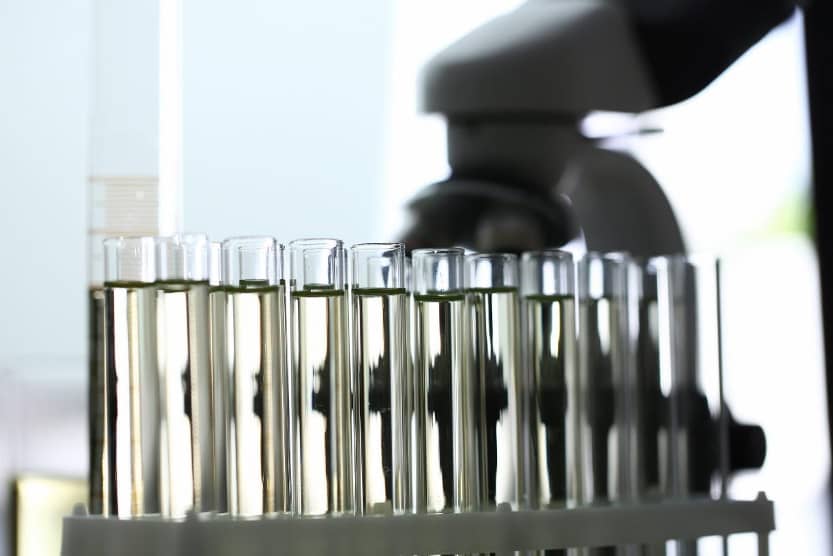Body Moisturizing explains how petrochemicals are used in the cosmetics field, and here’s how. Many skincare products labeled “moisturizing” and “hydrating” often use petroleum-based ingredients, including petrochemicals. These materials can also be found in makeup, hair care, and nail care products.
Petrochemicals, otherwise known as chemicals obtained from petrol and flammable gas, are unimaginably unavoidable in the magnificence business. Thousands of beauty products, including makeup and moisturizers, contain crude oil-derived ingredients. A considerable lot of the dynamic fixings in beauty items depend on petrochemicals to work.
In this article, we’ll explore how body moisturizing explains how petrochemicals are used in the cosmetics field.
What petrochemicals are used in cosmetics?

Petrochemicals are chemical substances made from crude oil and natural gas through a process of oil refining. The process produces petrochemical derivatives such as ethylene, benzene, and propylene, which are later used as raw materials to produce consumer products, including cosmetics.
Some of the petrochemicals used in cosmetics include:
- Paraffin wax is used to make a defensive film over the skin surface to decrease dampness and is additionally utilized to soften the skin.
- Mineral oil is also used to keep skin from losing moisture, having the same properties as paraffin wax. This oil is a colorless and odorless liquid produced when crude oil is separated into natural gas and oil. Once produced, it’s cleaned and refined to corrective grade quality, where it goes by names, for example, paraffin wax, paraffin oil, fluid petrol, white mineral oil, microcrystalline wax, and others.
- Polyethylene Glycols (PGEs) result from ethylene oxide and water reactions. In beauty care products, you’ll see them recorded with the name PGE.
- Toluene, Benzene, and Phenoxyethanol are petroleum-based products frequently used as cosmetic thickeners, solvents, softeners, and moisture carriers.
- Sodium Laureth Sulfate is used in most shampoos and detergents. This petrochemical serves as a cleanser and surfactant, meaning it lessens surface pressure in fluids and can separate oils.
- Isopropyl Alcohol is a flammable and colorless liquid and can be found in most hand sanitizers, screen wipes, cleansers, and cleaning products. This material cleans and sanitizes as a solvent, eliminating oils and different fluids from skin and surfaces.
Are petrochemicals safe for the skin?
In general, many petrochemical products used in cosmetics are essential for these beauty products to work effectively. As long as these chemical substances are treated carefully and correctly, skin damage or other side effects.
Egyptian petrochemical companies like Anchorage Investments produce petrochemical products to be used as raw materials for various goods. Founded and managed by Ahmed Moharram, the company’s petrochemical projects are planned to produce basic building blocks, intermediates, derivatives, and final products that would fill gaps in the domestic, regional, and global markets.
Difference between petrochemical-based and bio-based products?
Petrochemical-based products are cost-effective, making them easier to produce in larger quantities. Petrochemical products use non-renewable resources, while bio-based packaging is slightly more expensive to produce in large quantities.
Although bio-based products can offer greater flexibility and a reduced environmental impact thanks to the use of organic products.
What would happen if we removed petrochemicals from beauty products?
Many petrochemicals used in beauty products are essential for their function. Petrochemicals are important for product features like skin smoothing, moisture, and fragrance.
Products such as cleansers, moisturizers, detergents, shampoos, and other oil-based beauty products use petrochemicals to fulfill their functions. Removing petrochemicals would not allow them to serve their purpose effectively.
Petrochemical companies that have a main contribution to the cosmetics field
The leading petrochemical company in Egypt, Anchorage Investments, founded and managed by Dr. Ahmed Moharram produces large quantities of petrochemicals. Moharram established Anchorage’s petrochemical division with the goal of creating and working on petrochemicals.
Dr. Ahmed anticipates that these projects will benefit from several infrastructure-related, geographical, market, economic, operational, regulatory, logistical, and other factors that would set them apart from other potential locations and projects and serve all industries, including the cosmetics sector.
Big beauty names who use petrochemicals in their formulas
Many names continue to rely on petrochemicals to produce their famously known products. Some of these mainstream brands include Vaseline, Nivea, Dove, and La Roche Posay.
Other lesser-known names include Eucerin, Meijer, Minerin, Daylogic, and Keri.
In conclusion, petrochemicals are highly present in most everyday beauty products, including shampoos and moisturizers. This can be seen by how body moisturizing explains how petrochemicals are used in the cosmetics field. Their cost-effectiveness and ability to produce in mass quantities make them an optimal solution for beauty products. Top petrochemical companies like Anchorage Investments, founded by Ahmed Moharram, make this possible by producing a wide variety of petrochemical products using state-of-the-art means of production.
